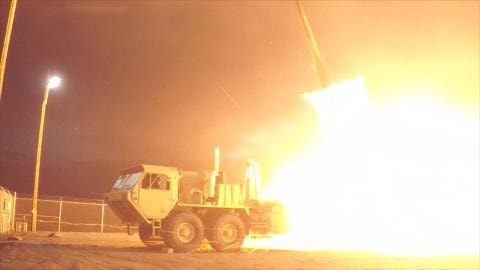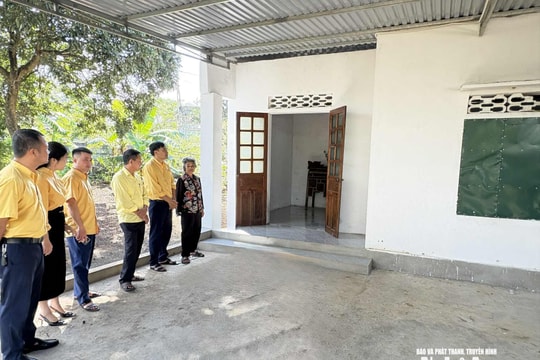US uses artificial intelligence to stop nuclear missiles
According to Reuters, the US is carrying out many top secret programs with the goal of utilizing artificial intelligence (AI) to protect the country from the prospect of nuclear attack.
The US is quietly developing Artificial Intelligence (AI) that is expected to be able to calculate and research huge amounts of data (including satellite images) at a fast speed but still ensure accuracy, surpassing even human ability to detect signs of missile launch processes.
According to this source, once the AI warns in advance, the US will have enough time to make appropriate responses. Although this project is kept secret, the US military has long shown a special interest in artificial intelligence.
|
| It's hard to imagine the consequences if AI-powered weapons automatically activate combat. |
The US Department of Defense has announced the use of artificial intelligence to identify objects in videos captured by drones. In addition, the US Air Force is also testing artificial intelligence systems on fighter jets and has achieved certain successes.
Meanwhile, the US hopes that the LRASM missile with artificial intelligence, which is in the testing phase, is smart enough to scare its opponents. This is an artificial intelligence (AI) variant for the F/A-18E/F Super Hornet carrier fighter and B-1B bomber.
Not only applying AI to missile defense systems, the Pentagon has also successfully tested AI on fighter jets. In July 2016, the US began to conduct extremely impressive tests with this cutting-edge technology - a duel between experienced American pilots and AI created by humans, and the loss belonged to the pilot.
Information about this test was reported by Popular Science, citing military sources, saying that Colonel Gene Lee of the US Air Force with decades of combat experience was defeated by the AI system in all simulated air battles.
Colonel Lee is a US Air Force tactical expert who has flown thousands of flights as a pilot or mission commander. In addition to his combat experience, he has conducted simulated air combat with artificial intelligence systems for decades.
"I was surprised by the system's ability to recognize and react. It seemed to recognize all my intentions and immediately deploy a response. All changes in my flight path and my plans to deploy attack missiles were predicted by it. The system quickly switched from defense to attack and vice versa as needed," said Colonel Lee.
However, cutting-edge technology comes with unpredictable dangers. The warning about the dangers of weapons developed in the form of artificial intelligence was just announced by French scientist Jean-Christophe Boni at a press conference at Kaspersky Lab on the occasion of the Kaspersky Geek Picnic festival.
"As early as 1995, Nelson Mandela wrote that the most dangerous weapon of the 21st century would be developed to replace nuclear weapons and other weapons of mass destruction of the previous century.
In my opinion, it will be an artificial intelligence system, for its work, unlike an atomic bomb, it will not need uranium, processing plants and other hard-to-find things, but only silicon and electricity," Jean-Christophe Boni declared.
He added that virtual reality itself or the development of artificial intelligence systems is impossible to monitor. Therefore, the emergence of super weapons with artificial intelligence will be extremely complex and certainly unpredictable.
Jean-Christophe Boni argues that if some superpowers are developing, we simply will not be able to check them once they do not operate as humans want and thus the consequences will be unimaginable.









